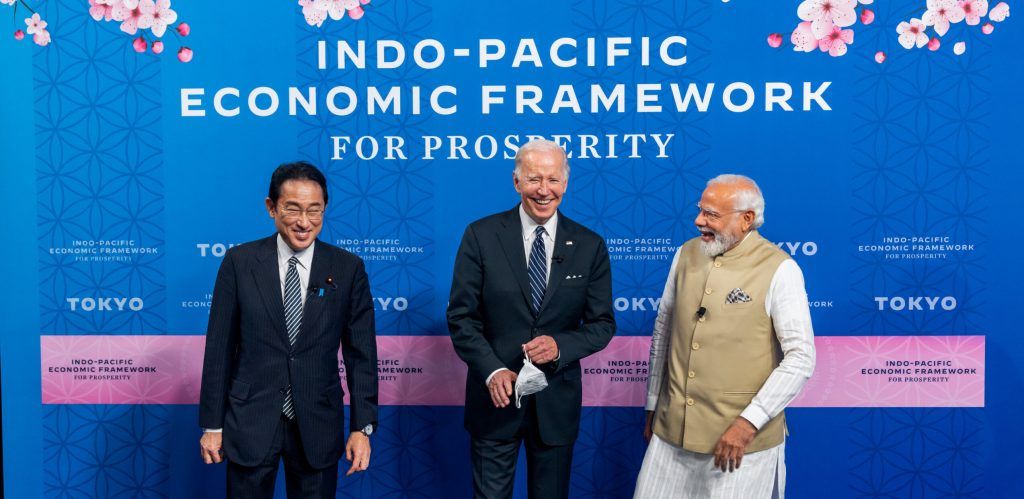Several chapters of the Indo-Pacific Economic Framework for Prosperity (IPEF) are typical of recent U.S. Free Trade Agreements (FTAs), such as the U.S.-Mexico-Canada Agreement (USMCA).
Some members of the U.S. Congress and stakeholders see the digital economy in particular as a promising area, given the groundwork laid in past and ongoing talks (e.g., the 2020 U.S.-Japan Digital Trade Agreement).
In May 2022, the United States and 13 partners launched IPEF, the Biden Administration’s first major trade and economic initiative in the region.
Participating countries are Australia, Brunei, Fiji, India, Indonesia, Japan, Malaysia, New Zealand, the Philippines, Singapore, South Korea, Thailand, and Vietnam.
According to a U.S. congressional analysis, the IPEF partners noted that the negotiations are open to other Indo-Pacific countries that «share our goals, interests and ambitions for the region.»
Canada has since announced that it would also seek to join, an offer that the Biden Administration has supported.
The IPEF will not take the form of a traditional U.S. free trade agreement (FTA). It will include commitments in four separate «pillars» covering selected trade issues; supply chains; clean energy, decarbonization and infrastructure; and taxation and anti-corruption.
The U.S. Trade Representation (USTR) is leading discussions on the trade pillar, and the Secretary of Commerce is leading the remaining pillars.
Economic Framework
Most partners opted to participate in all IPEF pillars, although India opted not to participate in the trade pillar.
IPEF partners unveiled targets for each pillar in late 2022 and held the first round of negotiations in December.
While the last IPEF round was held in March 2023, and the next round is scheduled for May, U.S. officials have stated their intention to achieve the main IPEF outcomes by the end of 2023.
International trade
The three pillars led by Trade involve objectives to enhance regional cooperation.
In the supply chain pillar, countries «aim to coordinate actions to mitigate and prevent future supply chain disruptions and secure critical sectors and key products for our manufacturers.»
Objectives include establishing criteria for critical sectors and a mechanism for information exchange and crisis response.
In the clean economy pillar, IPEF partners seek cooperation on innovation and investment related to clean energy and climate-friendly technologies.
The fair economy pillar aims to «level the playing field…by preventing and combating corruption, curbing tax evasion and improving transparency.»
The trade pillar, led by USTR, seeks to craft «high-standard, inclusive, free, fair and open trade commitments that build on the rules-based multilateral trading system.»
Areas include labor, environment, digital economy, agriculture, competition policy, transparency and regulatory practices, trade facilitation, inclusion, and technical assistance and economic cooperation.

